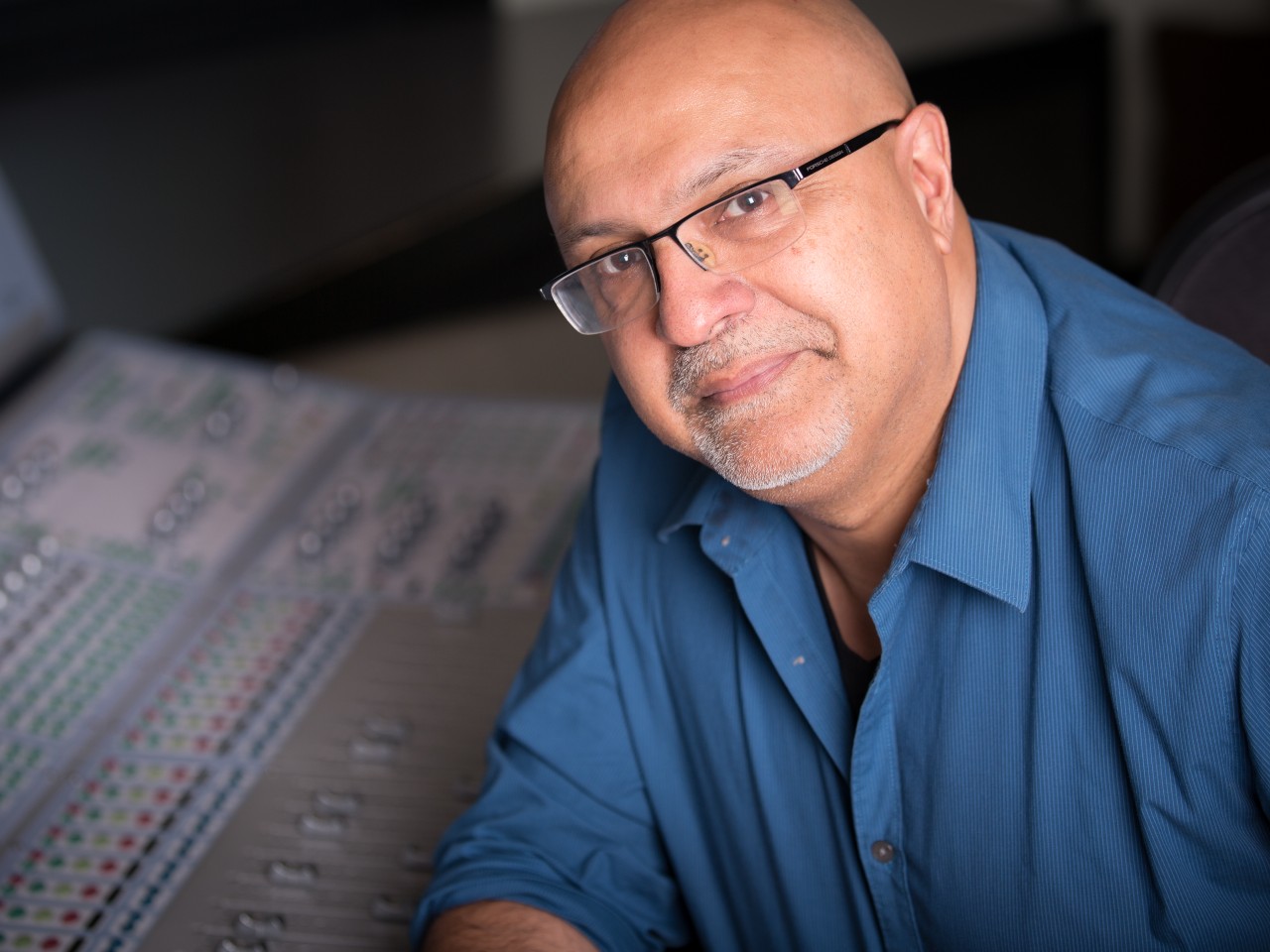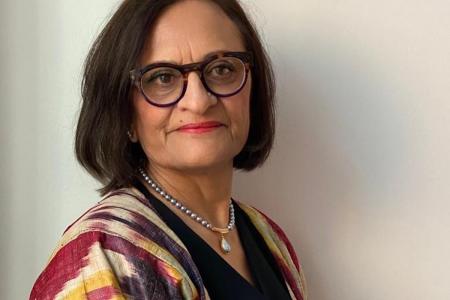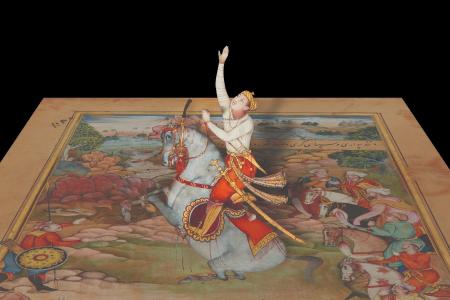“Music draws from a spiritual reality. I am grateful that I am in a particular position in time and space in which ideas come to me and I can translate them in this way,” reflects Bhatia.
The Ismaili Canada’s Deputy Editor Anar Rajabali spoke with Bhatia about inspiration, culture and the intrinsic power of artistic expression.
Your music takes the listener on a journey with its rich, warm orchestral arrangements. What are your influences, both classical and contemporary?
I am a hybrid of influences: Eastern and Western. My mom loved Bollywood movies and, since my father didn’t, I would end up accompanying her. So, I heard and learned about India’s most prolific playback singers, Mohammed Rafi and Lata Mangeshkar. It was my older cousins who introduced me to the Beatles and Paul Simon. Interspersed with Western classical music, which is my favourite, from Tchaikovsky to Stravinsky to Beethoven, I had a number of different musical vocabularies to draw upon. When I was composing for an episode of Ray Bradbury’s The Martian Chronicles, a science fiction series, one scene travelled to this giant ancient Mars temple and I found inspiration from Raga Indian classical music. It captured the spacey mood. I didn’t use a sitar but a strange electronic instrument and, by using that mode, was able to conjure something that was beautiful and unknown to Western audiences at the time.
As a composer for television and film, your role is to elevate and enhance the emotional power of a scene. What is your creative process when writing for a visual genre?
The American composer Leonard Bernstein said that, for great things to happen, two things are needed: an idea and a deadline. I [often] have to create something in a few days. Ideas can be hitting you all the time, in the midst of a wonderful family dinner, in the middle of a silly argument with a loved one—it doesn’t matter. You must capture them and hold them as fast as you can. I have a well of ideas that I have not finished tapping and, when under pressure, the creative seeds come up. The hardest thing is not to overthink them. I just have to listen for what the spirituality of the stories is telling me.
In Anne with an E, some of the stories and themes were so simple and pure. One episode deals with unrequited love as an elderly lady sifts through old letters from a man she chose not to marry. As she reads them, she realizes her tragic mistake. I tried a Beethoven-and-Schumann style of writing with piano and cello, to emulate a musical duet the estranged lovers may have played and practiced together in childhood. We captured the changing moods of the scene culminating in such bittersweet sorrow. This simple music remains a fan favourite.
As the COVID-19 crisis has pushed us individually and as a society to a place of reflection and reset, what have you experienced?
Once I ensured everyone [I know] was safe, I gave myself permission to retool and recharge. I found great joy in listening to old albums that I had not listened to in a very long time, and I discovered new music, too. If one thing positive has come from this unprecedented time, it is that it has been a reminder of what music, art, poetry, gardens and architecture can do for the human spirit, and [to] celebrate these things and feel inspired. I am grateful for [this] renewed importance of the arts in our lives, reminding us of one of the best things we can do as human beings—we can create art.
With many of us turning to music and the arts for solace and well-being, what do you believe is the role of the artist in society? For example, poet and musician Leonard Cohen called on artists to be “cultural workers.”
I do echo this sentiment. Art can inspire an audience to think and feel so much more than anything else. As I consider myself more of a storyteller than a musician, I believe in the power of stories. One of the most important things that art can do is show people alternate, different and diverse points of view. My family moved from Africa to Canada in 1971, when I was 10, and I was bullied for the strange way I dressed and talked. But, over time, society was becoming more diverse and artistic expressions followed. Ben Kingsley’s performance in Gandhi [1982] is an example of the Western world learning about our Indian roots through film. Later in the 80s, we heard Paul Simon’s album Graceland, a fusion of African folk music and American pop. Suddenly, the sounds and tunes I remember from childhood were being celebrated. Entertainment can convey a message more easily than the best intended political or charitable campaign. I believe this is its inherent power—artistic expressions can serve as a bridge to a vibrant society that honours the values of diversity.












